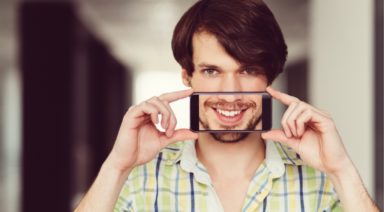Why Do We Sleep? For More Reasons Than You May Think

Most of us spend about a third of our lives asleep, despite not really having an answer to the question, ‘why do we sleep?’ Now neuroscientists are realizing that sleep is more important than previously thought. They’re also realizing that the worn-out platitude, “you can sleep when you die,” is terrible advice, as that day will undoubtedly come sooner if you short yourself on a good night’s sleep.
According to most contemporary research, you should be getting around seven to eight hours of sleep every night, and if you think you can get by on fewer than that, there’s a really good chance you’re fooling yourself.
Why is Sleep Important?
While the exact mechanisms of sleep are still being studied, neuroscientists including Matthew Walker have made interesting learnings about what happens when we deprive ourselves of sleep and the impacts sleep (or lack thereof) has on society as a whole.
When we’re awake, Walker says that essentially, we’re causing low-level brain damage. By this, he is referring to the build-up of the sticky, toxic junk in our brain known as beta-amyloid. This accumulation of beta-amyloid has been found to correspond with the onset of Alzheimer’s, among many other adverse health effects correlated with a lack of sleep.
Sleep is beneficial as more than just a healing function; it also replenishes spent resources and regulates hormone levels that dictate our appetite, cognitive function, and motor skills. The two hormones that dictate whether we are hungry or full, ghrelin and leptin, have been observed to flare up and down, respectively, when we’re sleep deprived. This inevitably leads to an increase in hunger, but even worse, it leads our bodies to crave unhealthy and fattening foods — those heavy on carbs and light on greens. In fact, people who run on four to five hours of sleep per night tend to eat 200-300 more calories per day.
For men, sleep is an important regulator of hormones, most notably testosterone. Sleep-deprived males can have the same virility and strength as a man 10 years their senior. For women, a lack of sleep can lead to a significantly increased risk of breast cancer and drops in immune hormones.
According to Walker, just introducing a single night of just four hours of sleep among a normal eight-hour sleep schedule, can bring about a 70 percent drop in natural cancer-killing cells, the immune assassins that target malignant carcinogens. Every day our bodies produce these cells and others to fend off disease and maintain our health, and while a cat nap might make you feel refreshed, it won’t make up for the loss of these cells.
Sleep’s Importance in Learning and Memory
Sleep plays a key function when it comes to retaining everything we learn throughout the day and improving upon it. While the sleep when you die phrase is cliché, there’s another truism that actually holds some truth – when you want to solve a problem or get better at something, it’s best to sleep on it.
While some have postulated that the dream state may play a role as a practicing mechanism for our daily life, no one is entirely sure of its function. However, it has been shown through EEG monitoring that when our brains learn, we essentially create basic algorithms in our head to remember or sequence that function. When we’re awake, initially that sequence is choppy, but through practice and repetition, our brain smoothes out the kinks in between.
And this jump happens when we sleep because our brains continue to repeat those algorithms we’ve been practicing throughout the day. Except it recites them up to 20 times faster. Our brains don’t have to focus on all the other things it does while awake, so it has more bandwidth to devote to developing those algorithms. Eventually, we perform those tasks more fluidly like when playing an instrument or even doing something as simple as typing. With enough practice, our bodies can perform physical functions without directly thinking about them.

After a single night’s sleep, our bodies show anywhere from a 20-30 percent improvement in the skill or function it’s trying to learn. Walker says it’s statistically the most significant performance enhancer of all time.
And this knowledge was used to its advantage in early methods of biohacking by scientists, thinkers, and artists dating back centuries. The micro-nap was used by Aristotle, Einstein, and Tesla, who held onto a pair of steel balls as they nodded off in a chair. When they fell asleep they would drop the balls on the floor or onto a metal pan, waking up from the loud clang. In the seconds, or minutes, their brains were asleep, they were able to access creative genius, attributing some of their greatest discoveries to this trick.
For some, this would be exacerbated by first depriving oneself of sleep, which is not a healthy recommendation, though it goes to show how restorative and impactful sleep can be on the brain.
And if you don’t get enough sleep, your mind will take those micro-naps on its own. Ever been in a room where the lights flicker so quickly that you’re unsure if they even flickered at all? Your brain does that when it’s tired. It will fall asleep and wake up in an instant. And if you’re incredibly sleep deprived, the brain will get its dream sleep even if you’re awake. That’s why people who have been awake for too long begin to hallucinate – the brain pulls the veil of the dream state over waking reality.
The more we learn about sleep, the more we realize how vital it is to nearly every aspect of our health and well-being. Unfortunately, there is no way to shortcut getting a healthy night’s rest or making up for it on the weekend. Unlike our metabolic system which can store fat for when it’s needed later, we can’t store sleep for that reason, we can only accrue sleep debt. So, if you want to live the healthiest life, think clearly, and solve problems… get some rest.
Water-Only Fasting Protocols Found to Enhance Cancer Treatments

Intermittent fasting has become popular for health and weight loss. But could fasting also be a highly effective tool for fighting and reversing cancer?
Across the world, nearly every culture has a tradition of fasting, but in our modern lives we’ve created a world of surplus and with it a constant and easily satiated hunger. With this excess food, our society has become plagued by diseases of excess.
Dr. Alan Goldhamer is the founder of True North Health Foundation, a therapeutic clinic for water-only fasting that helps patients suffering from a range of illnesses including hypertension, inflammation, autoimmune disorders, and cancer.
“We’ve gone from being criminal quacks to cutting-edge researchers because this idea of fasting has definitely gained some popular support,” Goldhamer said. “Our approach is very different, we believe that there is a cause of real health and the cause of health is healthful living. So, we focus on diet, sleep, (and) exercise, and we use fasting to undo the consequences of dietary excess, essentially. That’s why the conditions that respond the best to fasting are the conditions caused by dietary excess – so, obesity, high blood pressure, cardiovascular disease, Type II diabetes, autoimmune diseases, and certain forms of cancer, including Lymphoma.
Studies have shown that fasting acts to help the body’s natural ability to destroy dead or diseased cells — a process called autophagy. Now, doctors have begun to study how fasting protocols in conjunction with drugs, such as chemotherapy, can improve the efficacy of cancer treatment.
“It turns out autophagy is the process the body uses to get rid of cellular debris — aging cells and cancer cells — and it turns out that fasting is one of those things that may profoundly enhance autophagy in, not just humans, but also in other animals. In fact in rats, if you do periodic fasting with rats you can double their lifespan (everything else being equal). So, this is something that’s very interesting and promising. I don’t know that we have what I would consider definitive research on the issue, but it certainly raises one of the mechanisms by which fasting may also be effective,” Goldhamer said.





































